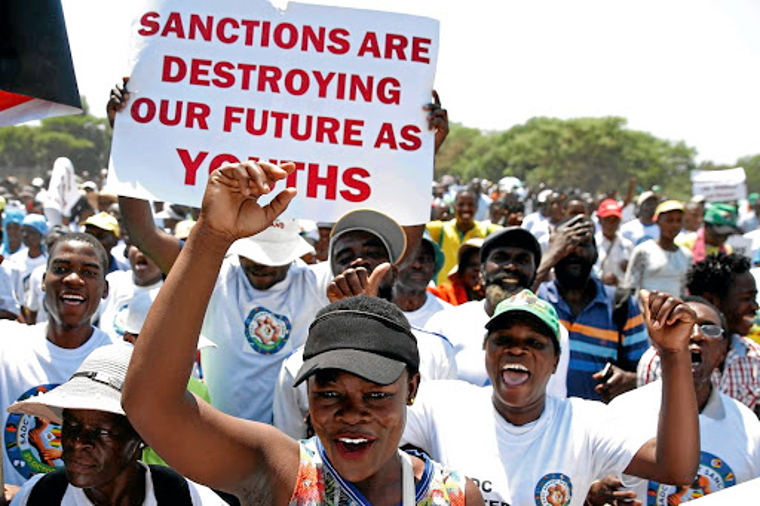(vii) In conclusion, the question that remains is the one posed right upfront in this write-up: if, after 21 years, the US declaration of a national emergency on Zimbabwe in Executive Order 13288 of March 6, 2003; and which was relied upon in Executive Order 13391 of November 22, 2005 and Executive Order 13469 of July 25, 2008; “should no longer be in effect”, and “is no longer needed” as determined by Biden under Executive Order 14118 and, if as such, orders 13288, 13391, and 13469 are revoked, as they were on 4 March 2024, what does this development mean?
The US ‘national emergency’ was declared on 6 March 2003 by George W Bush under Executive Order 13288to “deal with” the alleged actions and policies of certain members of the Government of Zimbabwe and other persons who were alleged to “undermine Zimbabwe’s democratic processes or institutions”, and were said to be “contributing to the deliberate breakdown in the rule of law in Zimbabwe…and to political and economic instability in the southern African region”; and that their alleged actions constituted “an unusual and extraordinary threat to the foreign policy of the United States”, and that therefore Bush declared, “a national emergency to deal with that threat.”
So, in the circumstances, why did Biden invoke Executive Order 14118 on 4 March 2024 to revoke the 6 March 2003 US declaration of a national emergency that was purportedly meant to deal with the situation in Zimbabwe, a situation which he says he remains concerned about, on grounds that the national emergency declaration “should no longer be in effect”, and it “is no longer needed”?
Has the revoked 2003 emergency declaration achieved its objective?
The best way of assessing this is by outlining – to compare and contrast – the national, regional and international environments that obtained in 2003 when the national emergency was first declared, versus what the environments are, 21 years later, in 2024; following the revocation of the emergency.
Geopolitically, in 2003 the US saw itself in a unipolar world as the sole superpower with a globally seductive currency that it threw around like confetti to sponsor regime-change trouble and to fund proxy wars around the globe; a trigger happy superpower with a seemingly invincible military power that enabled it to act at its whims and caprices, unilaterally, internationally and on any issue in any country; and had the reflexive disposition to willy-nilly invade any country anywhere, without risking any pushback.
For example, the US invaded Afghanistan on 7 October 2001; and on 21 December 2001, Zdera was approved to take effect as US Public Law 107-99. And on 20 March 2003, exactly 14 days after its 6 March 2003 declaration of a national emergency that the situation in Zimbabwe constituted “an unusual and extraordinary threat to the foreign policy of the United States”, the US invaded Iraq in an ‘awe and shock’ mass-murder attack which sent chills down the spines of national leaders around the world.
The geopolitics and surrounding circumstances of the declaration of the national emergency in March 2003 were unsettling.
By 2003, Britain, under the government of the Tony Blair led labour party, had succeeded in mobilising the US, the EU and the White Commonwealth to impose sanctions on Zimbabwe to reverse the country’s historic land reform programme; in the guise of good governance and the rule of law in Zimbabwe. The US, through the hand of President George W. Bush, used this ‘white front’ of Western nations to enact Zdera in 2001 and Executive Order 13288 in March 2003.
Around that time, Russia was on the back foot, with suggestions that it was even mulling over the possibility and implications of joining NATO; and seemed happy to be invited to the meetings of the G-7 Group of the ‘leading’ Western nations, which was then an important geopolitical forum. China was still carrying itself out as an inward looking Third World country, with little to no appetite for global politics.
Continued next page
(1121 VIEWS)


